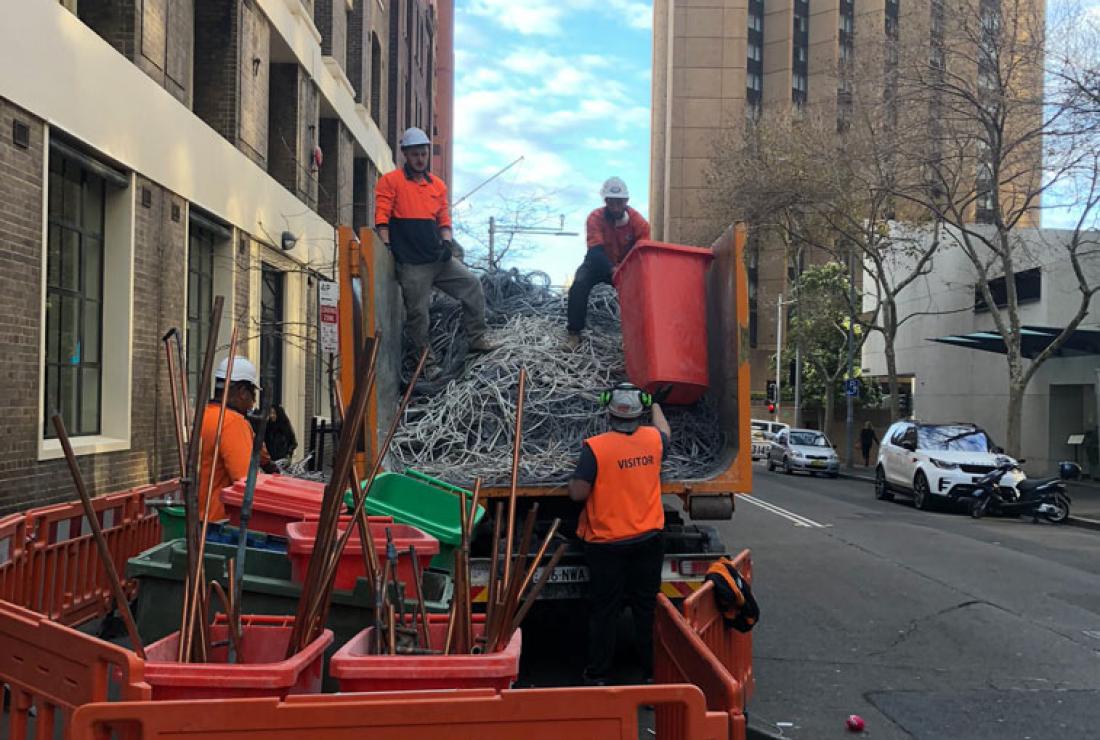Residential rubbish removal tips: keeping your Sydney home clean and tidy
As a resident of Sydney, you have a part to play in the city’s waste strategy. Whether you're dealing with household waste, garden debris or bulky items, every resident needs to inform themselves on how best to remove residential rubbish.
Before we dive into the tips, it’s important to understand why proper rubbish removal and waste management is necessary.
Understanding the importance of rubbish removal
Health and hygiene
Accumulated rubbish can become a breeding ground for pests like rats, mice and cockroaches, which represent serious health hazards. Proper rubbish removal helps maintain a hygienic living space.
Environmental impact
Responsible rubbish removal contributes to environmental conservation. By ensuring that waste is disposed of or recycled appropriately, you reduce landfill waste and help protect Sydney's natural surroundings.
Aesthetics
No-one wants to live in a hoarders’ paradise. A clutter-free and tidy home improves its aesthetic appeal and creates a pleasant living environment for you and your family.
Compliance with regulations
Many Sydney councils have specific rules for rubbish removal and waste management. To avoid fines and legal issues, residents need to comply with all regulations.
Effective rubbish removal tips
Here are some helpful and practical tips to help you manage your rubbish removal and keep your Sydney home clean and tidy.
Segregate waste
Separate your waste into categories. Recyclables, organic waste and general rubbish are the most common. Use designated bins for each type of waste for easy recycling and proper disposal.
Regular collection services
Use Sydney waste services and rubbish removal providers that offer regular collection schedules. Make sure you adhere to the collection timetable to prevent rubbish from piling up.
Bulky waste collection
For large or bulky items, take advantage of your council’s specialist waste collection services. Many councils offer scheduled pickups for items like furniture, appliances and mattresses.
Recycling stations
Locate nearby recycling stations or drop-off points for items that may not be collected through regular waste services, such as electronic waste, batteries or hazardous materials. Again, consider using the services of a local rubbish removal company, especially in the disposal of hazardous waste.
Composting
Dispose of organic waste through composting. Composting not only reduces landfill waste but also provides nutrient-rich compost for your garden.
Garden refuse disposal
If you have a garden, dispose of as much debris as possible by composting leaves and grass clippings or use them as mulch. Prune plants regularly to prevent overgrowth and remove excess waste using the green bin garden recycling service or get a specialist to move it for you.
Hazardous waste disposal
Dispose of hazardous materials like chemicals, paint, light bulbs, mobile phones and batteries at designated hazardous waste collection sites. Never mix hazardous materials with regular rubbish. In cases where the hazardous waste is too much to dispose of by yourself, specialist removalists should be contacted.
In demolitions, materials like asbestos require specialised removal. Asbestos is a harmful mineral that was widely used in house construction for decades and poses severe health risks when disturbed.
Minimise packaging
Reduce waste at the source by choosing products with minimal packaging or opting for reusable or eco-friendly alternatives.
Donation and reuse
Instead of throwing away items you no longer need, consider donating them to charities or organisations that can reuse or repurpose them.
Educate household members
Educate your household on the rubbish removal plan and make sure they follow proper disposal practices. Make them aware of recycling and waste segregation in the separate bins.
Additional considerations
Skip bins
For larger cleanup projects, consider renting skip bins. Skip bins come in different sizes and can be used for clearing out a garage, decluttering your home, or during renovations and building projects.
Council guidelines
Familiarise yourself with your local council's rubbish removal guidelines and schedules. Council websites provide detailed information on waste collection and recycling.
E-Waste Recycling
Electronic waste (e-waste) should be properly recycled. Many Sydney waste services offer e-waste recycling programs to ensure the safe disposal of old electronics. A number of rubbish removal companies also specialise in e-waste.
Renting a green waste bin
If you have a substantial amount of green waste from gardening or landscaping, consider renting a green waste bin from a rubbish removal company for convenient disposal.
Conclusion
Efficient rubbish removal and waste management are essential for maintaining a clean and healthy home in Sydney. Responsible rubbish removal practices also preserve the beauty and sustainability of Sydney's natural surroundings.


